EN

In October, the city council's regulations for street artists were finally approved and came into force last month. A step welcomed by those who take their art to the streets, seeking fleeting connections with passers-by. Street musicians tend to be the focus of an activity that is also associated with minor friction with authorities and shopkeepers. We spoke to four people who have found the city's biggest theatre in the street.
Some people look at street musicians with suspicion, almost like a mendicant figure. But it's also common to find a mass of people gathered in a semicircle, with a shopping bag in one hand and a mobile phone in the other, watching an excited rendition of a familiar song. This provocation to those who weren't planning to stop her is seen as a great motivation for Estrela Gomes, who says that ‘it's in making someone stop that the magic lies’.
Born in a village in the Coimbra area, Estrela started playing in the street at the age of 14, out of carolice, and only during school holidays. Armed with a guitar that she already handled naturally, she saw these small concerts not only as a form of entertainment, but also as a way to train her voice - today, she even uses her voice to imitate the sound of a trumpet (mouth trumpet), a trick often appreciated by her audience. He doesn't play in the street just for fun either - although he went on to study in administration, he now makes his living solely from music: he plays in hotels, at corporate events and at parties.
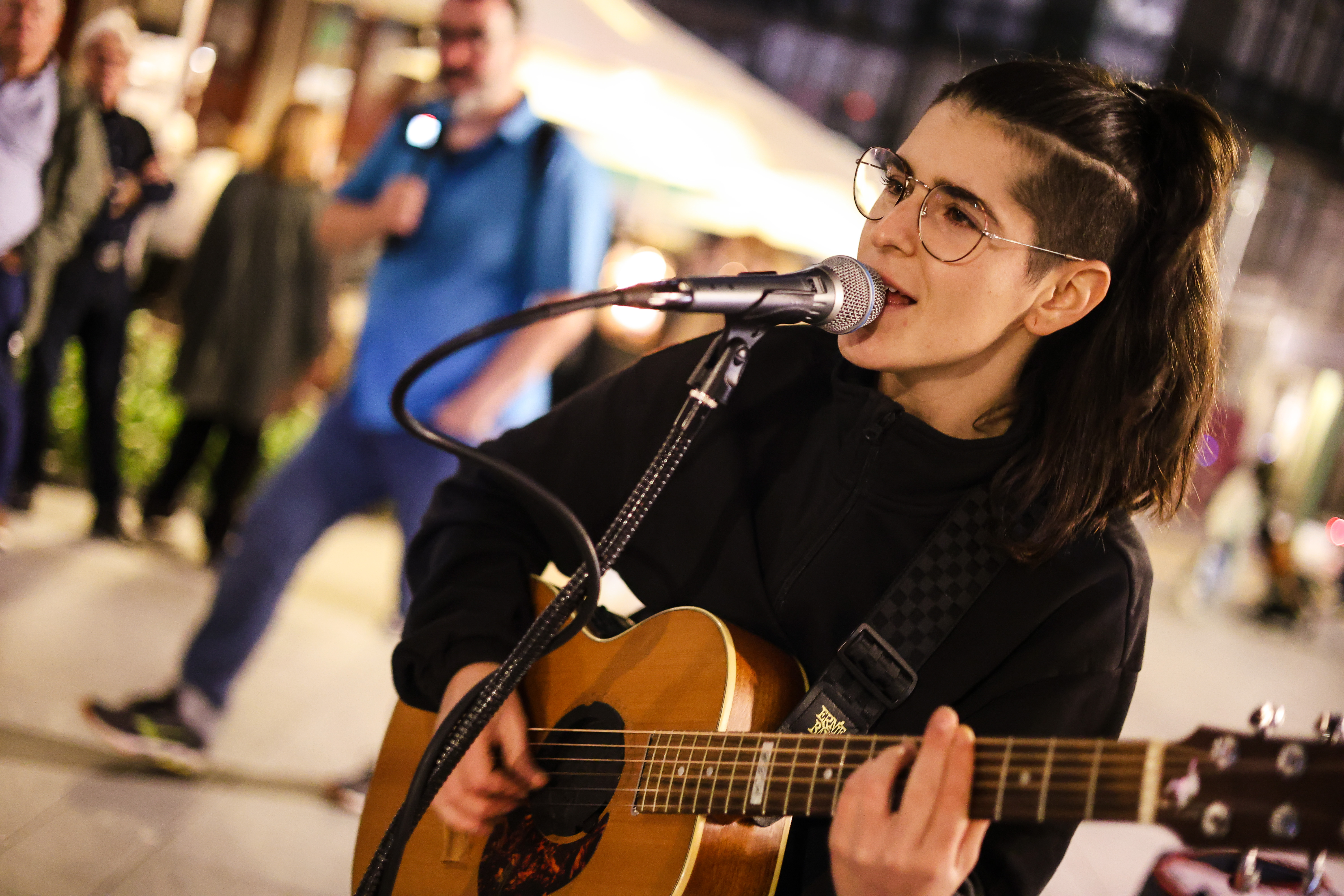
© Inês Aleixo
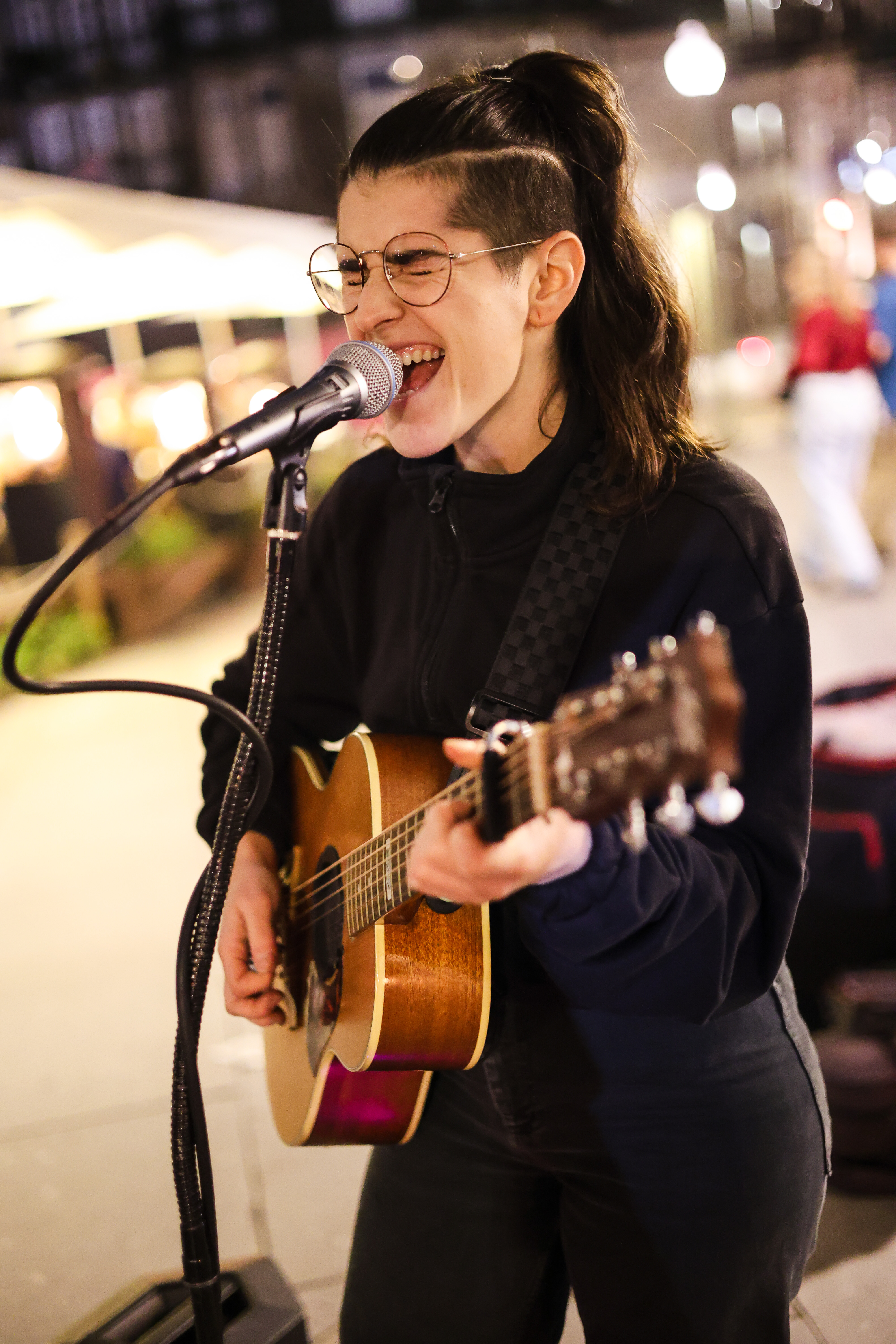
© Inês Aleixo
And since moving to Porto, he's realised that it's possible to survive playing on the street: ‘Ten years ago, there were probably ten street musicians in the whole city. And everyone knew each other, so if we happened to cross paths in Santa Catarina we'd play a duet straight away.’ But today he has a slightly different attitude: ‘For me it's important to respect the street. I hesitate to play with a band in the street, for example, because it's too noisy, too much space is taken up. When you see tunas playing, you notice that sometimes they're completely covering a shop window.’ - This wisdom of the streets comes from his long career: ‘The musician is just another element of the street, we have to know how to be in harmony with all the others who depend on it to survive.’
In this sense, he is pleased with the new regulations for street performers: ‘I feel it's a good starting point, there are still a few things to correct. But I take my hat off to it, it was something we had been waiting for for a long time.’ Even more than just waiting, Estrela was part of a group of street musicians who shared suggestions for regulation with the City Council. This collaborative effort also came from a need for musicians to be in contact and to coordinate on which spaces to occupy and when: gone are the days when there were only ten of them playing on the street. ‘I'd say that nowadays there are around 100 musicians playing on the street in Porto, and most of them aren't interested in coordinating with the others,’ he says.
Greta Wardega has also seen efforts to connect street musicians collapse. Born in Poland, she has always been attracted to Balkan music. She turned this attraction into proximity when she moved to Croatia to study, and it was there that she had her first contact with street concerts. But her desire to travel took her through Austria, Belgium, Spain and finally Portugal: ‘Finally, it was the sea that stopped me.’
Greta remembers playing in the street with her band, the Balklavalhau - a combination of the words ‘cod’ and ‘baklava’, a typical dessert from the Balkans and Turkey, assuming a fusion between Balkan music and the country where the band was formed. It was the second half of the 2010s when Balklavalhau were playing in the streets of Porto, and Greta says there was ‘a different energy in the city, with more possibilities. It was easier to find somewhere to play, everything was a bit more relaxed’.
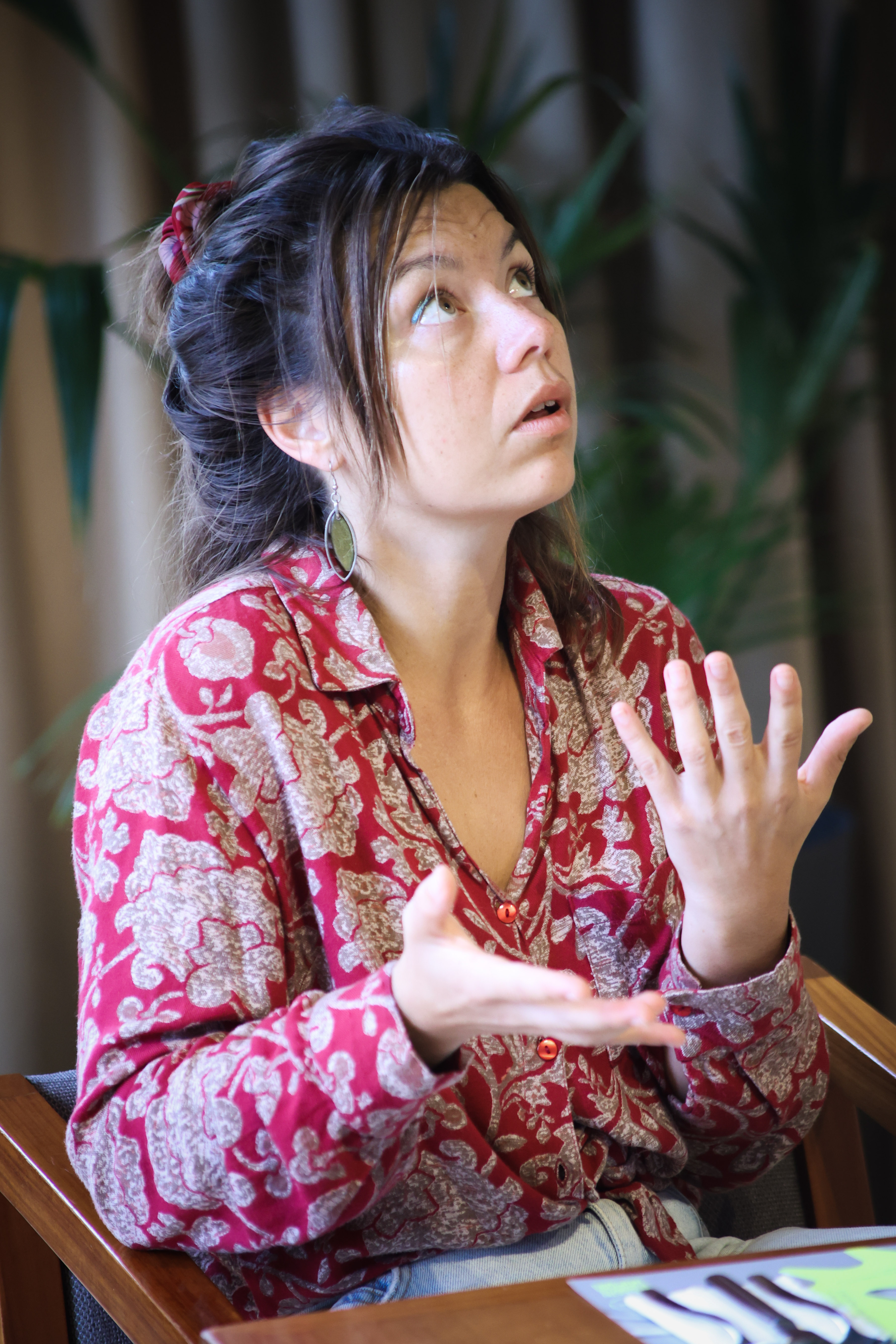
© Inês Aleixo
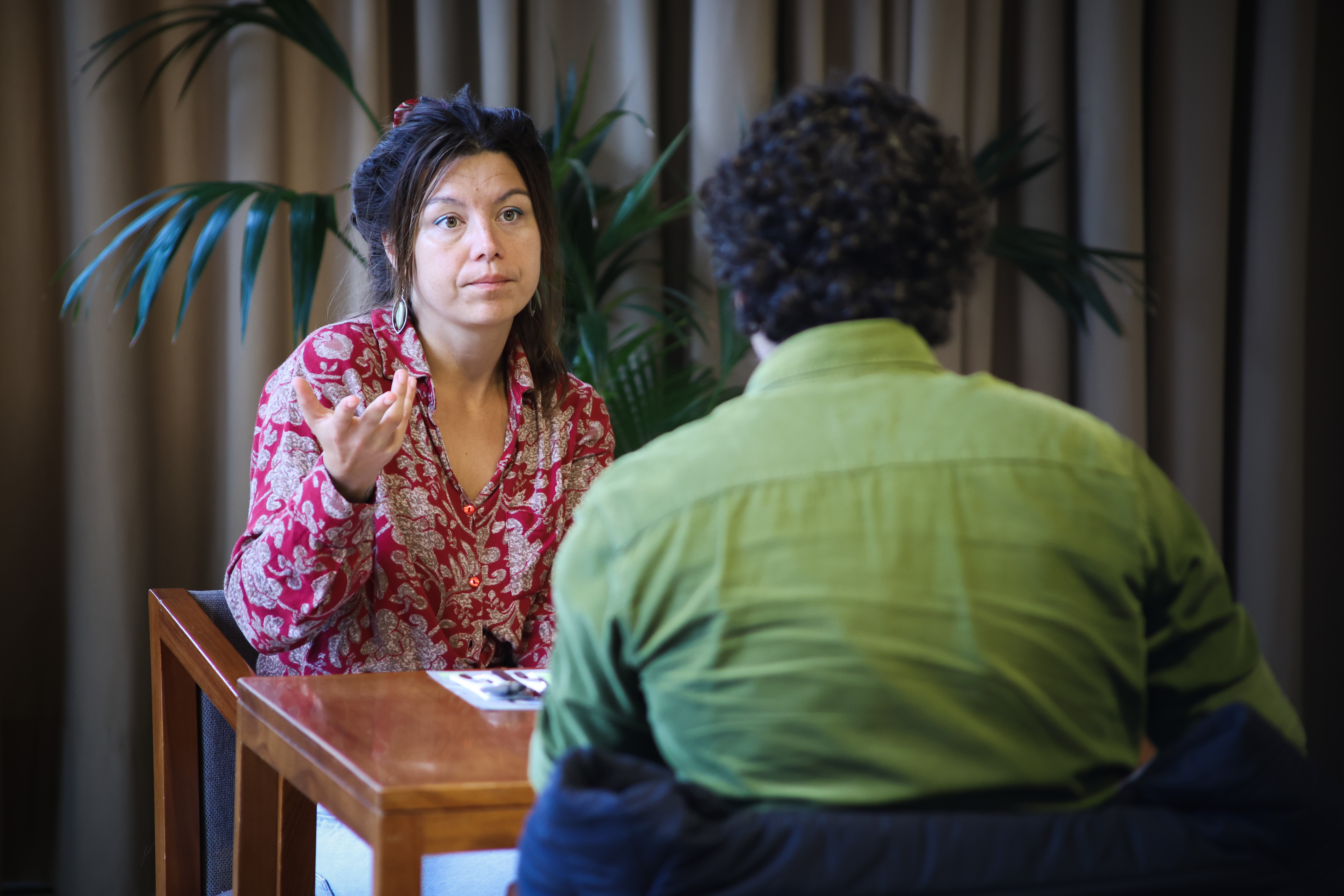
© Inês Aleixo
Today, the band hardly plays in the street anymore: ‘There are a lot of artists who are a bit like the “piranhas” of the business, they have no interest in sharing the space. Some members of our band still try to play in the street, but they find venues like the streets of Cedofeita or Flores completely full.’ Even so, he points out that in Porto he's found the ‘most relaxed atmosphere’ of all the countries he's played in: ‘In Krakow (Poland), the city centre has been a Disneyland for some time now. It's impossible to play without a licence, but they don't respond to requests either. In Barcelona it's not easy either, you have to be very careful about the venues you choose.’
Choosing a good venue isn't just about the flow of people or the space to gather a good crowd. Josefina, a Chilean teacher and actress who started playing in the streets of Porto around three years ago, reveals that ‘sometimes there are even other musicians who chase us and insult us just for occupying a space where they want to play’. ‘They even call the police to remove us. It's all very dark,’ he laments. Despite this, he agrees that Porto has a better environment for street musicians than usual: ‘The police don't confiscate instruments, which is very good. And there was even a policeman who waited for me to finish a song before asking me to stop playing, which is inconceivable in other parts of the world.’
These other parts of the world include not only Chile, but also southern Vietnam, where Josefina spent some time after graduating in Theatre. The training can be seen in her presence on the street - although she sings a song of her own that is sad and slow, she projects her voice in a way that makes heads turn. Training in dramaturgy also helps her engage with those people who Josefina feels are responding to her music, even if it's in a shy and disguised way - she tries to grab that attention: ‘I understand that people don't want to or can't give money, but sometimes all they have to do is offer a smile and I feel it's worth it to be here playing.’
Regarding the ‘income’ from these performances, Josefina admits that tourists ‘give more, much more’, but that it gives her more pleasure to play for Portuguese people because ‘they identify much more with the music’. ‘Ranchera, Latin American music, has a lot of this suffering thing. In the Ribeira area there's a gentleman who, whenever he sees me, asks ‘how's the fado singer’, and I love it!’
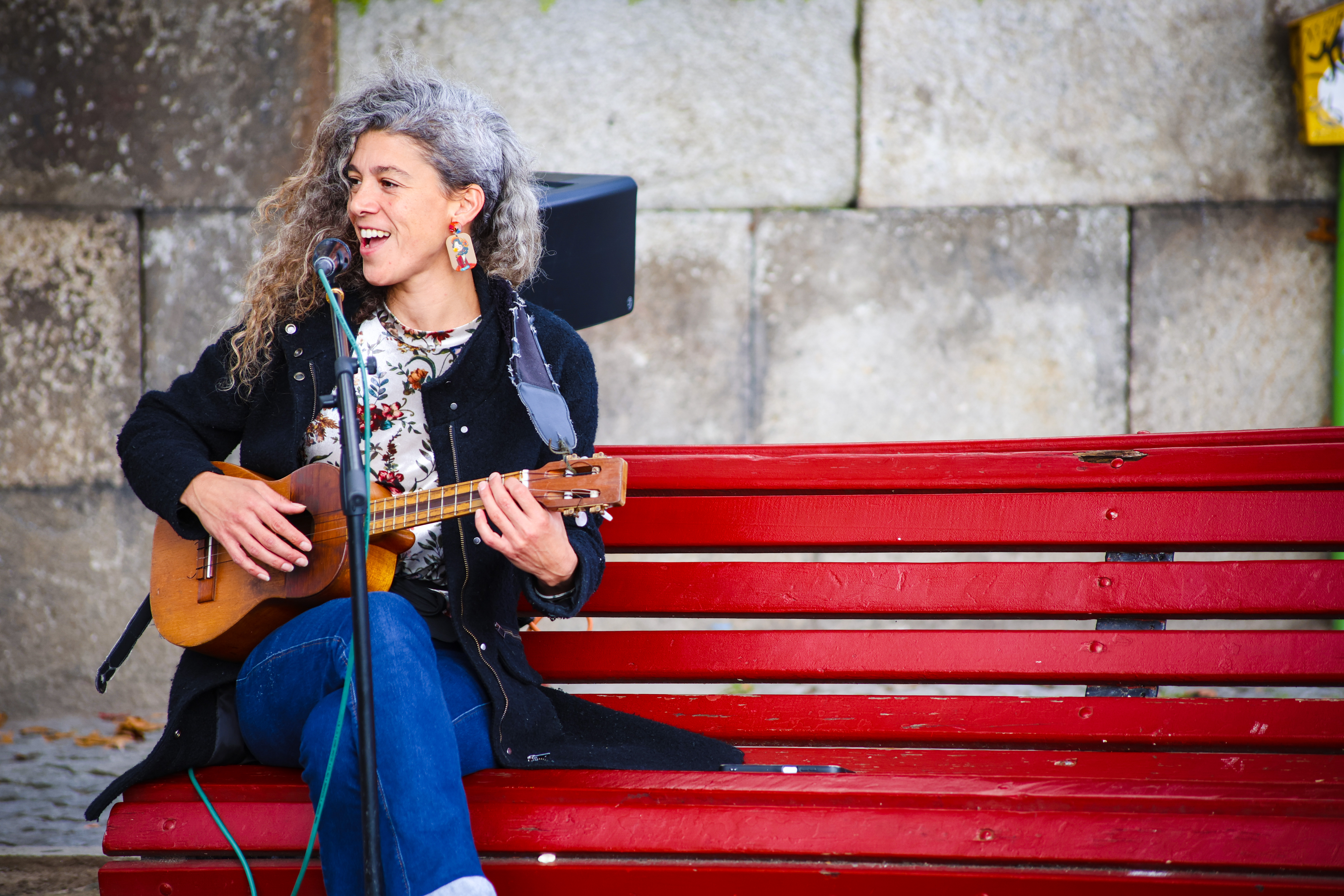
© Inês Aleixo
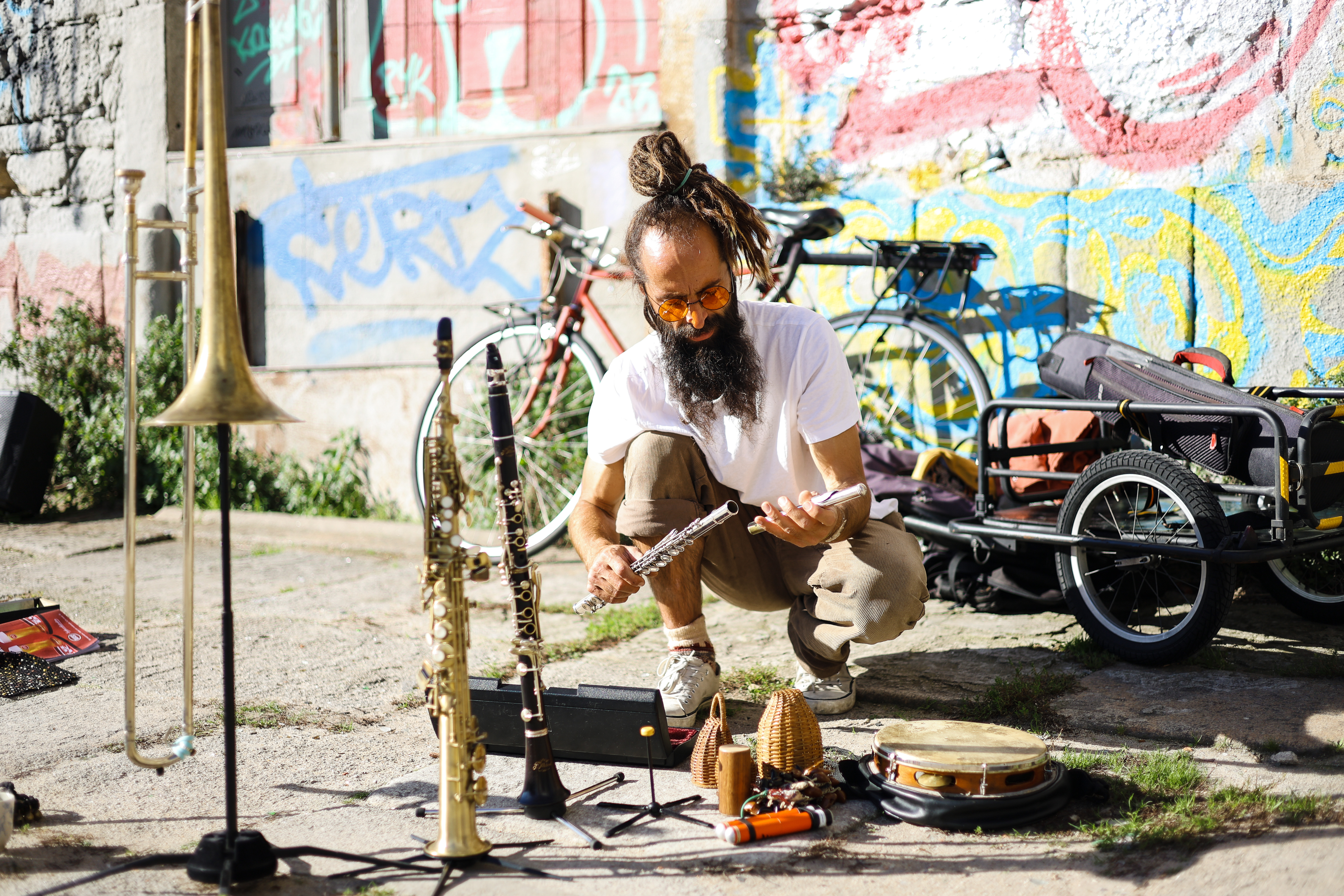
© Inês Aleixo
Felipe Mueller, on the other hand, chooses not to play sad compositions, but rather melancholic ones. Born in Joinville, in the Brazilian state of Santa Catarina, Felipe's involvement with music began at an early age, starting with the guitar played in his church, passing through drum lessons and ending up in a band with his school friends. But when he was 18, he gave up: ‘I was disappointed because I thought I wasn't going to be a virtuoso, I wasn't going to be the best in the world. Virtuosos spend all day locked up at home practising and studying, and I was too keen to get out of the house and enjoy my life.’
After completing his studies in Business Administration in Ireland, he finally found the time to pick up the instruments again. But it was in Portugal that he experienced playing in the street for the first time. And he also tried his hand at wind instruments for the first time. It was a kind of open-air rehearsal in which Felipe ‘spent three hours playing in Santa Catarina, and came home with only 15 euros, but happy because he took up wind instruments out of passion, he never expected to make money from it’.
Today, Felipe can be seen travelling around on a bicycle with a trailer capable of carrying the whole family of instruments: the small speaker, the tambourine, the clarinet, the tenor saxophone and the flute. And it's usually found in places that are a little more secluded and serene: ‘I like peaceful places where you can still hear the birds. Bill Evans used to say that you could be in a cupboard, but if the music was good, the audience would know where to find you.’
by Ricardo Alves
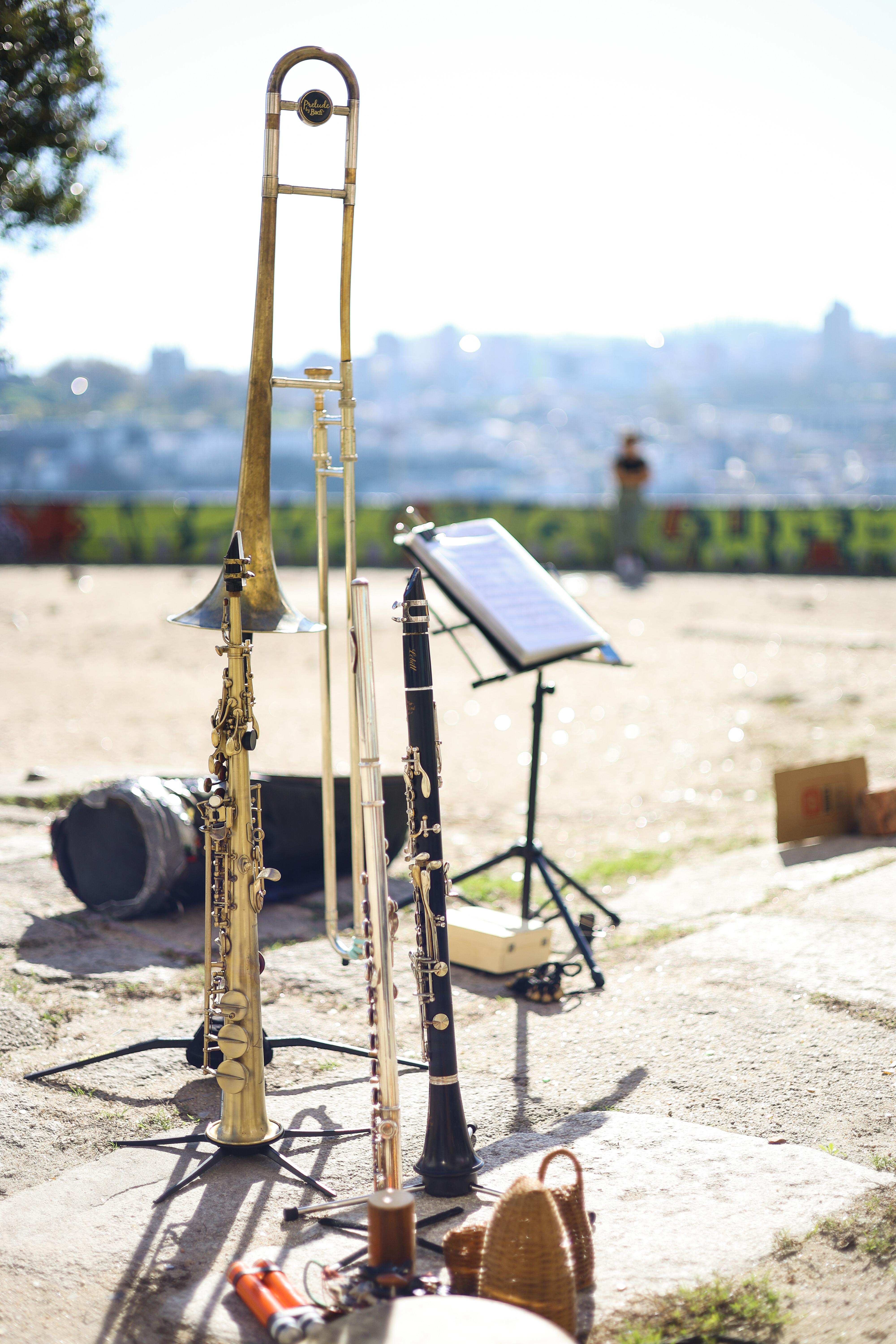
© Inês Aleixo
Share
FB
X
WA
LINK
Relacionados


